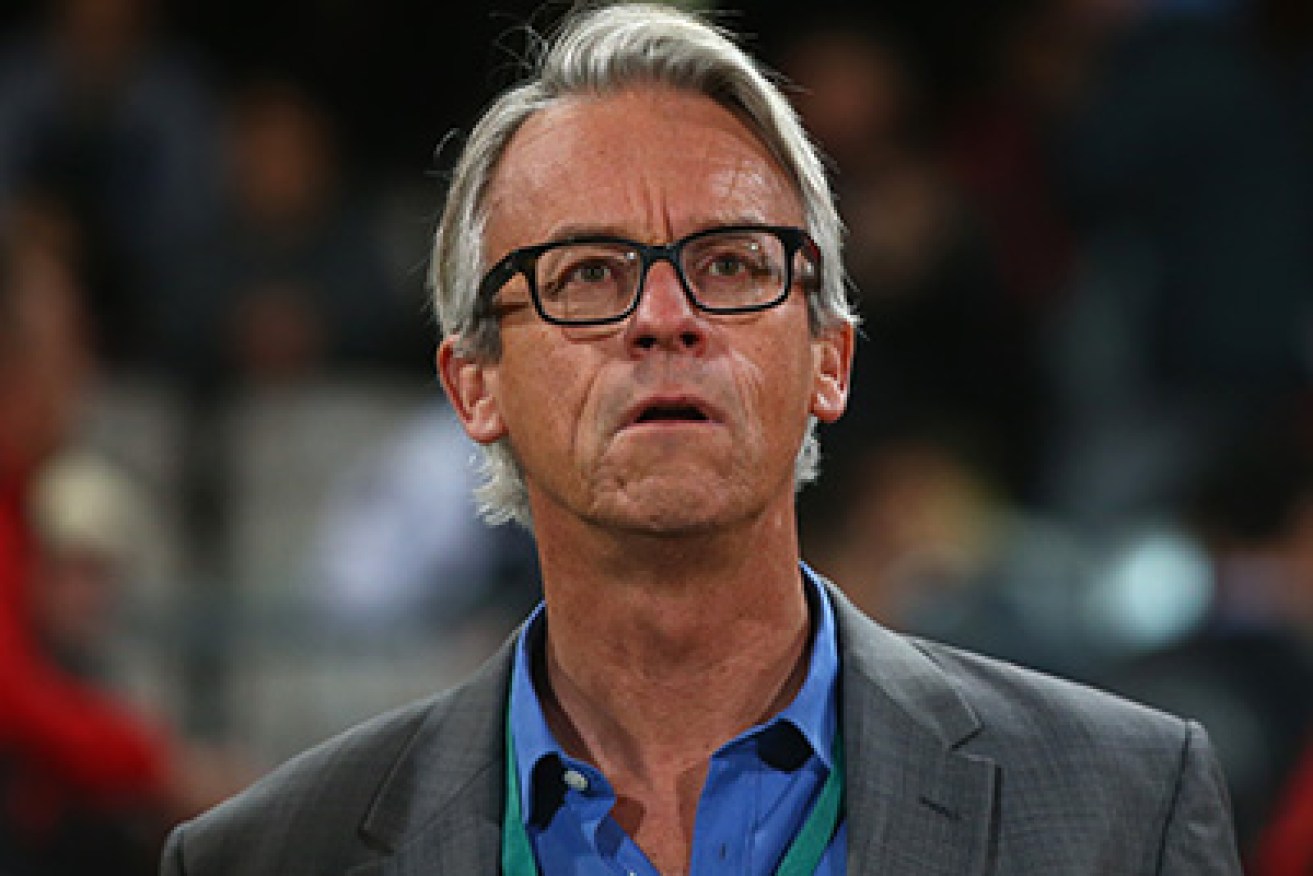This World Cup star earns less than a Maccas worker

SYDNEY, AUSTRALIA - SEPTEMBER 01: FFA CEO David Gallop watches on during the FFA Cup Round of 16 match between Rockdale City Suns and Melbourne Victory at WIN Jubilee Stadium on September 1, 2015 in Sydney, Australia. (Photo by Mark Kolbe/Getty Images)
Laura Alleway is one of Australia’s sporting superstars. But take a look at her bank balance and you’d be forgiven for thinking the Matildas central defender plays for a high school team.
She, like other players in the national women’s football squad, is paid just $21,000 a year by Football Federation Australia for her work with the Matildas. That’s split between contracts the team members sign every six months.
To try to improve their situations, the Matildas have cancelled their tour to the United States in a bid to have their pay increased to the minimum annual wage – around $31,531.20 (before tax) – plus a few other demands.
• Matildas cancel USA tour amid pay dispute
• Gender pay gap remains a reality
• Angela Pippos: let’s stop pretending and get real about women’s sport

Laura Alleway is a 26-year-old World Cup veteran, yet she still has to live with her parents to make ends meet.
Alleway said without a proper wage, or an ability to hold down a steady job due to her commitments with the Matildas, she has been relying on her supportive parents to survive.
“I’m nearly 26 and I still live at home because I can’t afford to live out of home,” she said.
“I do my best to save but it’s extremely hard to have savings on a $21,000 base wage.”
Like many of the Matildas, Alleway said she has had second jobs, but she’s been “let go” several times due to her commitments to soccer.
“It’s not fair on the boss and it’s not fair on me if I can’t do the job (because I’m away),” she said.
She was looking at getting a job in a cafe last year – but then she saw the Matildas’ schedule and knew she wouldn’t be able to.
“I was going to have 40 days at home out of 180 – but that’s fine because that’s the decision I’ve made to play football,” she said.
“We all make sacrifices.”
Perhaps adding salt to the wounds are the rumours that the other top five teams in the Women’s World Cup earn significantly more than the Matildas.
Although the star players of the World Cup-winning USA side reportedly earn up to $92,000, players in that team have also raised concerns over money.
Life on hold

The Matildas returned from the Brazil World Cup as the first Australian national football team to make a quarter final. Photo: Getty
While she isn’t able to hold down a job, Alleway has been studying to be a teacher – a degree she has been undertaking for the past eight years on a part-time basis.
“My degree has been very slow,” she said.
“Since it requires a lot of hands-on practical work (to train to be a teacher in the classroom) I need to be home four weeks in a row and I can’t be.”
She’s also had to defer her studies to meet her Matildas’ commitments and is afraid that doing so may hold her back.
Alleway said she’s not sure that even when she retires – which she plans to do in four years (after the next World Cup, no doubt) – that she’ll have completed her degree.
“I’m not even sure I’ll be able to start in a job, especially if I don’t have my degree. I’ll be starting from behind.”

Call centre workers may earn more than double the wage of a member of the Matildas squad.
Wage comparison
Call centre worker: $49,728
Butcher: $47,106
Hairdresser: $44,004
Bartender: $41,808
Waiter: $32,555
World Cup star: $21,000
Source: payscale.com and PFA.
The demands

FFA CEO David Gallop. Photo: Getty
Alleway said she thought the negotiations of the player’s CBA (Collective Bargaining Agreement) would go smoothly after the hugely successful World Cup campaign.
“Especially after the Word Cup which was record breaking – although I felt we could have done better – coming home I thought it would be smooth sailing … we’d see the team grow, we’d have a full (training) program and enough money to not have to take second jobs,” Alleway said.
“We’re not asking to be on what the Socceroos are being paid – we’re just asking to be treated fairly.”
Protracted negotiations between the Professional Footballers Association and Football Federation Australia have meant the Matildas players have not signed a new CBA, and worse, have not been paid.
Late on Thursday afternoon, FFA CEO David Gallop confirmed that 11th-hour wage negotiations with the players had failed.
He said the wage increases the players were asking for were not sustainable.
He added that it was “nonsense” that the Matildas have been caught up in wage claims for male players.









